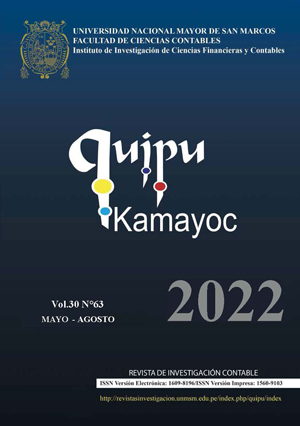Fintechs and the financial inclusion process in Peru
DOI:
https://doi.org/10.15381/quipu.v30i63.24043Keywords:
fintech, financial inclusion, traditional bankAbstract
The objective of the study was to examine the relevance of fintech in the process of financial inclusion in Peru. The analysis was descriptive and was carried out through a documentary review. The scope of the investigation found that fintech companies aim to serve segments not covered by traditional banking and have great development potential, as a result of the advantages of digitization and the use of innovation, open banking trends, and a cooperative model. Likewise, these companies face obstacles that have prevented further progress in financial inclusion, such as the absence of financial products that meet the needs and the high operational costs compared to the low profit margins, which represent the traditional assistance given to those of excluded segments. In conclusion, it is noted that Fintechs contribute to the process of financial inclusion in Peru by providing access to products and services to segments of the traditionally excluded population. In addition, they promote competition in the financial system by introducing products suited to the client's needs, in a more efficient manner. However, despite the advances in the sector, it is essential to generate more evidence around the impacts that fintechs have on the financial inclusion process.
Downloads
Downloads
Published
Issue
Section
License
Copyright (c) 2022 Anapierina Andrea Salas Quenta, José Gerardo Miranda López, Raphael Angel Saldaña Pacheco, Rulman Arturo Diaz Nishizaka

This work is licensed under a Creative Commons Attribution 4.0 International License.
AUTHORS RETAIN THEIR RIGHTS:
a. Authors retain their trade mark rights and patent, and also on any process or procedure described in the article.
b. Authors retain their right to share, copy, distribute, perform and publicly communicate their article (eg, to place their article in an institutional repository or publish it in a book), with an acknowledgment of its initial publication in Quipukamayoc .
c. Authors retain theirs right to make a subsequent publication of their work, to use the article or any part thereof (eg a compilation of his papers, lecture notes, thesis, or a book), always indicating the source of publication (the originator of the work, journal, volume, number and date).





























